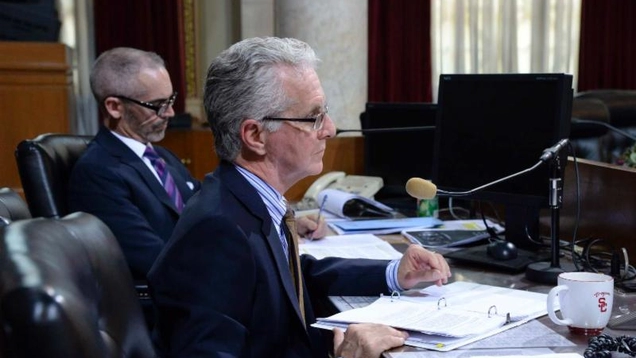
Keeping film and TV jobs in Los Angeles is an urgent priority for our city. We cannot afford to allow jobs to be lured away by lucrative tax credits in other places.
On May 30, the City Council passed two motions that I made as Chair of the citys Ad-Hoc Committee on Film and TV Production Jobs aimed at securing these jobs and creating more in the years to come Creating a Feedback Loop, the first motion, will improve communication with film and TV production companies by having the city survey everyone who gets a film permit or has obtained one in the past two years. We want to be able to evaluate the experiences filmmakers have working with the City of Los Angeles.
Making the Process Easier. the second motion, aims to make the city more userfriendly for film and TV production by making filming in parks easier., preventing extortion of filmmakers by rapidly deploying police officers to location shoots, creating a more integrated computer system to track film permits, location and staff, and processing permits faster and accurately posting film shoot location signs.
These motions will get the ball rolling toward making it easier for our entertainment business partners to work in Los Angeles and create jobs. They will also help Los Angeles prepare for the filming influx thats sure to come. Last week, the California State Assembly unanimously passed an expansion of Californias film and TV tax credit. AB 1839, the California Film and Television Job Retention and Promotion Act, would replace the states first film and TV tax credit law, a bill that I authored, and help California better compete with generous tax subsidies available in other states and countries.
My 2009 law has been a major statewide success, funding more than 270 projects, generating $4.75 billion in economic activity and creating 51,000 mainly highpaying jobs, many for skilled workers like electricians, carpenters, animators and cinematographers.
If passed, the expansion bill would allow a broader swath of productions to qualify for the incentives, enabling producers to reduce their tax liability by as much as 25% of the cost of many production expenditures.
It would also remove current restrictions that prevent movies with budgets greater than $75 million, as well as new TV network dramas, from qualifying for the incentives. I am confident that Sacramento will do the right thing and pass this new tax incentive bill soon.
When they do, Los Angeles will be ready to address film permit requests more efficiently and accurately. A surge in local production would be a welcome development for the Valley and for the city as a whole.